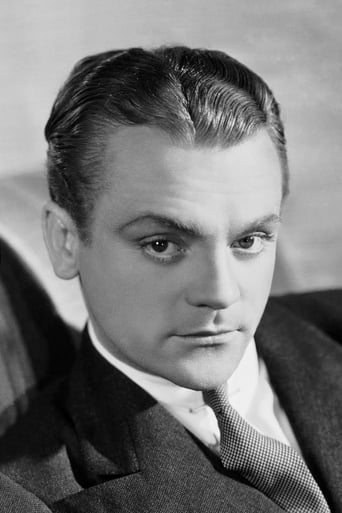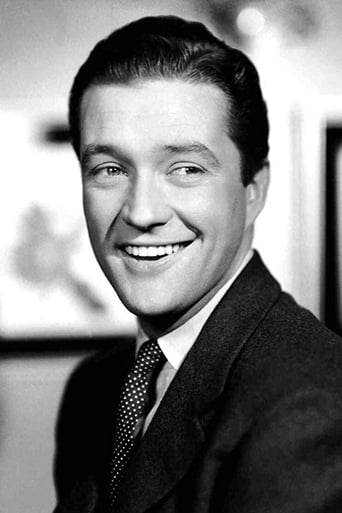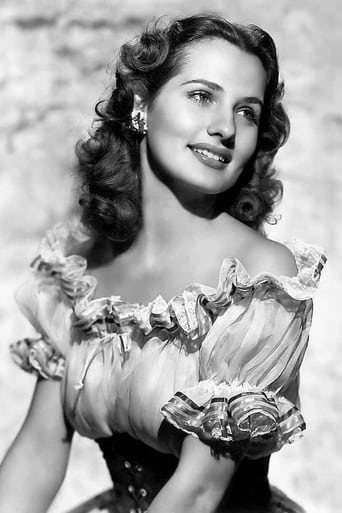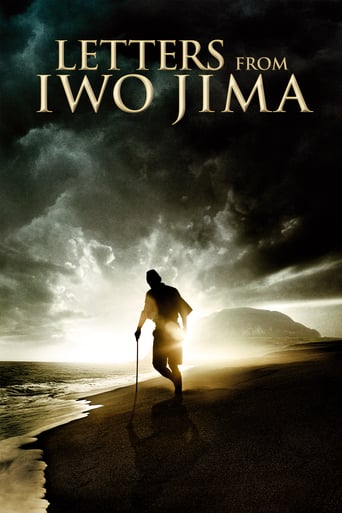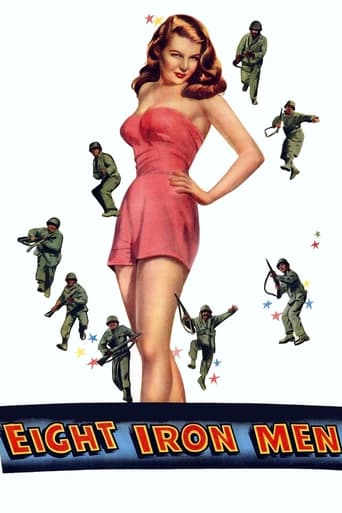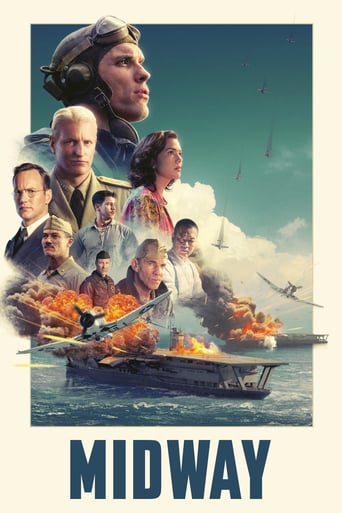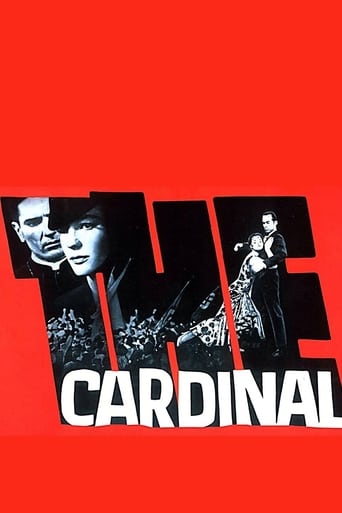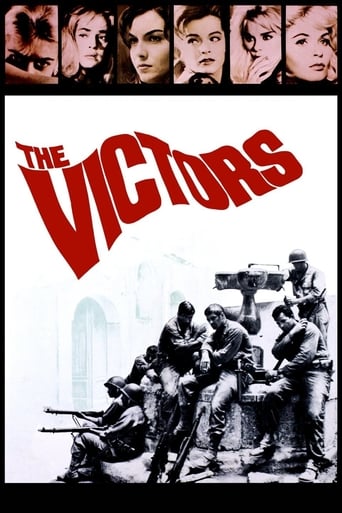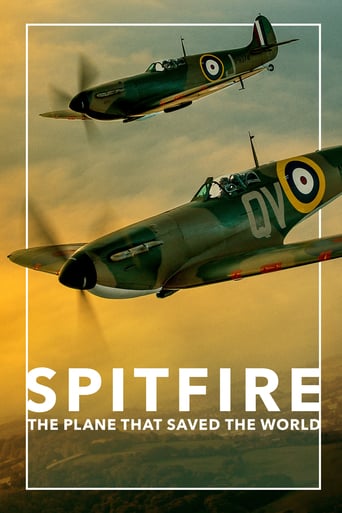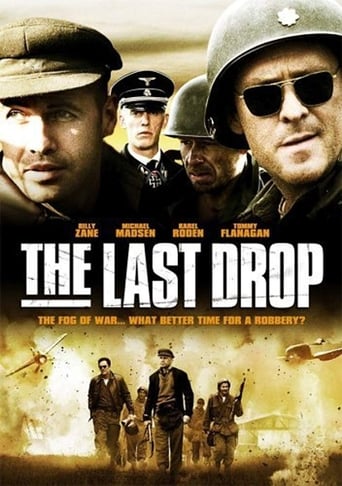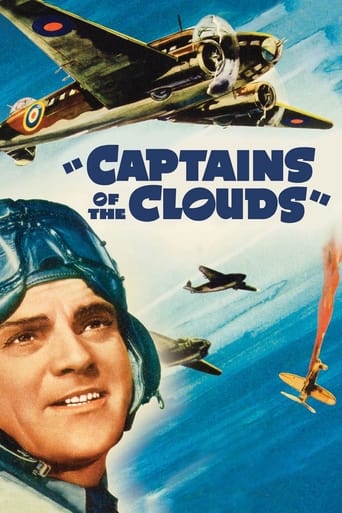
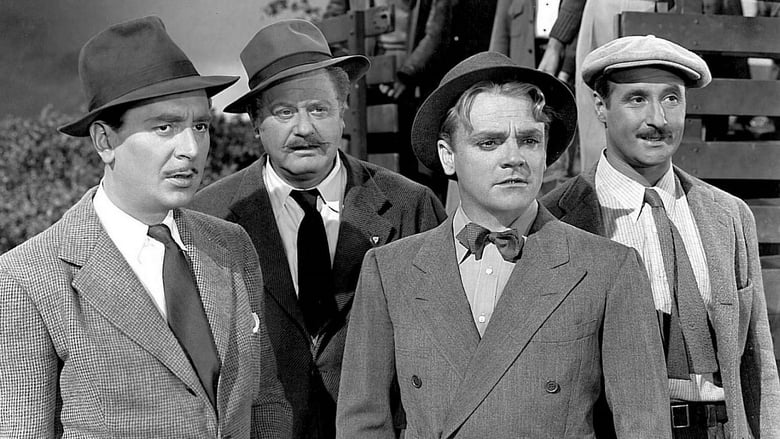
Captains of the Clouds (1942)
Inspired by Churchill's Dunkirk speech, brash, undisciplined Canadian bush pilot Brian MacLean and three friends enlist in the RCAF.
Watch Trailer
Cast


Similar titles
Reviews
Captains of the Clouds (1942) It's always a bit weird to see semi-propaganda films made with mainstream talent, as if it's just another movie. It kind of eats into the credibility of movies in that period in general, as distinctive art forms as opposed to commercial vehicles. So this has (for example) songs by Harold Arlen (Over the Rainbow fame) and Johnny Mercer, and some photography by the great Sol Polito (though there were four shooters involved, due to the range of situations required). And the director is the indisputably excellent Michael Curtiz, who was making "Casablanca" at roughly the same time. This is a movie about the Canadian air effort in the war. The lead by James Cagney is slightly odd in this regard, but it gives the movie creds. The leading woman (reddish hair and very red lipstick for the Technicolor production) is a more suitable Brenda Marshall. The scene is in an isolated lake country, dependent on small planes for getting everything they need in and out (including teams of huskies, at the beginning). It's all quite beautiful, and if the characters are back woods caricatures, that's part of the whole shtick with this kind of film. So this is a manly world with people dickering over money, but showing a kind of integrity that makes them dependable and ready to support the war effort once it gets going. The speech by Winston Churchill heard by radio (halfway through the film) is the key turning point, and the men rise above their petty small town rivalries. The "girl" is what really matters behind all their arguments. But war, of course, changes even love. Devotees of war films will appreciate the accuracies in the training and the aircraft used. Of course, this was shot not long after it actually was happening (a year or two) and legitimacy is almost unavoidable on some level. But finally I have to get to the actual plot, the human interactions that make up the story, because this is a weakness overall. The attempts to give personal relatability to the events are natural, but not all that convincing. So seeing it sixty years later it can't be watched quite for the story itself, but for the many parts that make up the overall arc. Curtiz is great and he makes the most of it all. Max Steiner's music helps though it is a little overblown for a lot of what a mount to documentary sections. The fact it's in color is interesting (for the expense) and it's actually part of what makes it interesting-and it's quite believable, clean, not oversaturated color, brilliantly controlled.
Directed by Michael Curtiz, with a screenplay co-written by Norman Reilly Raine, this average war drama is credited with being James Cagney's first Technicolor film. In fact, one of the first things I noticed, besides Brenda Marshall's beauty, was seeing Cagney, Dennis Morgan, Alan Hale, and George Tobias in color! Reginald Gardiner also appears, though more prominently in the latter half of the film.It's a story about Canadian bush pilots who compete for jobs with one another until they are (more or less) "forced" to work together. Eventually, war breaks out and, inspired by a radio broadcast of Winston Churchill's brave words ("We will never surrender!"), the pilots decide to enlist to join the conflict. There's a love triangle between Cagney, Morgan, and Marshall to be resolved and the film's final 30-40 minutes, supplemented with lots of aerial stock footage of military aircraft et al, is war related. The film received Oscar nominations for Color Cinematography and Art Direction-Interior Decoration; its special effects are laughable by today's standards.A mysterious bush pilot named MacLean is "stealing" all the work and undercutting the fares typically paid for job after job normally performed by Johnny Dutton (Morgan), "Tiny" Murphy (Hale), Blimp Lebec (Tobias), and Scrounger Harris (Gardiner). Of course, Brian MacLean is played by Cagney, who meets and sweeps Dutton's fiancée Emily Foster (Marshall) right off her feet. J. M. Kerrigan plays Emily's father, a storekeeper. Later, MacLean causes the three to (at least partially) wreck their planes when they try to force him down to show displeasure for his actions. But when MacLean gets hurt, hit on the head with his own prop and rescued (pulled out of the water) by Emily, Dutton flies through fog and risks his life landing at night to retrieve a doctor (J. Farrell MacDonald) for him.This begins an agreement, more than a friendship, between Dutton, Tiny, and MacLean which leads them to work together throughout the Winter off-season transporting supplies for a string of mines (run by Charles Halton). Flying explosives in perilous conditions causes the men to draw closer such that MacLean, concerned that Dutton's return to marry Emily will cause his financial ruin, beats him to the punch. Without explaining himself to anyone else, MacLean returns first to take Emily to Ottawa with his bankroll where he weds her to keep her from destroying Dutton's plans to start an airline. Upon learning this from Emily's father, Dutton goes to Ottawa where he learns what's happened, punches out MacLean (who doesn't really defend himself), and then gives his $4,000 to charity before disappearing. Charles Smith plays a bellboy, uncredited, at the hotel in Ottawa.Unbeknownst to the others, Dutton is the first to hear the call of military service, and joins its ranks. Meeting up back home with Tiny, Lebec and Scrounger, MacLean and company hear the aforementioned inspirational radio broadcast from Winston Churchill (Miles Mander, uncredited) and decide that the Canadian Air National Guard needs their help. Willie Fung plays the café owner. The four bush pilots fly their planes confidently onto the military base thinking their services are invaluable only to later find out that, despite their vastly superior flying hours, they're too old for combat. They are told that their age makes them susceptible to blacking out during high-G force maneuvers, but that their skills are needed as instructors.Reginald Denny plays the officer in charge; Gig Young plays one of the student pilots; George Meeker appears briefly in a club scene. MacLean finds that Dutton is his commanding officer and must deal with that, in addition to being told that he won't be able to fight in the war. There are incidents of insubordination, including MacLean and Tiny buzzing Air Marshall W. A. Bishop himself, before tragedy and, eventually, acts of heroism follow. Dutton also learns the truth about MacLean with regards to Emily, which enables the film's final act.
I would like to pay tribute to the hundreds of pilots who appeared in the film. I do not see mention of them anywhere. One in particular was my great uncle Malcolm James Larke Blunt who graduated and received his wings at the filming. It was exciting that the ceremony was filmed and the family could see the ceremony even though they couldn't be there. This milestone can still be watched by hundreds of relations! We honour him for his bravery some six weeks later when he lost his life battling the Germans over Holland. While the credits omit the brave airmen featured in this film, I will continue to tell my family of this very brave extra!
As a pilot, yes I enjoyed the airplanes. And the early technicolor views of Canada. But this is such a false, poorly written Hollywood script that I found the movie almost unwatchable. Every cliché in the book is trotted out, many of them at odds with the story. A guy marries the girl to keep his pal from marrying the wrong girl. Wrong because she dreams of the city life and this means she will run through the guy's money when he should be starting his dream airline. Really -- that's why you marry someone? But he, being the strong, silent type, and somehow thinking this is noble, doesn't tell his pal who ends up so bitter and broken-hearted that he throws away his money and never starts his dream airlines anyway. The irony seems to go completely unnoticed, probably because irony is not in the script. After another pal dies in an airplane crash, the hero sneaks onto the flight using his other pal's papers, and no one recognizes it is the wrong guy! A clever ploy that I am guessing only works in Canada. Well, you get the idea.


